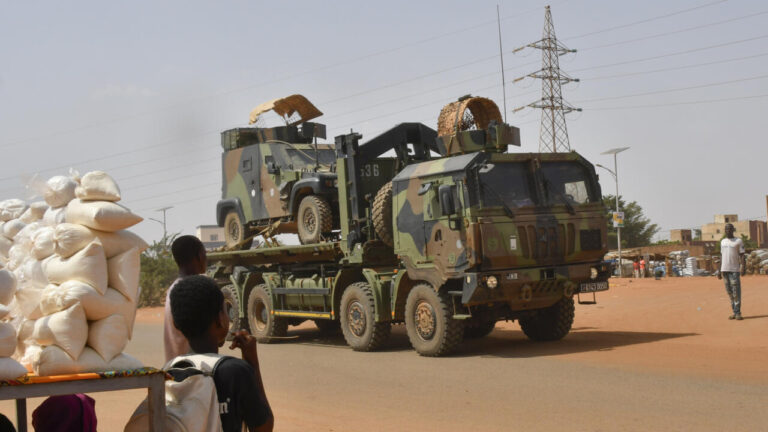France has begun withdrawing troops from Niger after being ordered out by coup leaders as the United States on Tuesday cut off more than $500 million in assistance to the insurgency-hit Sahel nation.
Washington declared that Niger’s military had staged a coup on July 26, overthrowing a democratic government seen as a key bulwark against Russia.
“Any resumption of US assistance will require action … to usher in democratic governance in a quick and credible timeframe,” State Department spokesman Matthew Miller said.
The United States, along with West African nations and former colonial power France, had been pressing the military to restore President Mohamed Bazoum.
“We’re taking this action because over the last two months, we’ve exhausted all available avenues to preserve the constitutional order in Niger,” a senior US official added.
The United States is keeping about 1,000 military personnel in Niger, but they are no longer actively training or assisting Niger forces, another US official said.
They will continue to work to monitor threats from jihadists.
The French army move kicks off a complex and fraught process that Paris expects to be completed by the end of the year, drawing the curtain on another French anti-jihadist operation in Africa.
“The first troops have left,” the spokesman for the French chief of staff told AFP, confirming an announcement Monday by Niger’s military leadership, which said the 1,400-strong French contingent would start leaving Tuesday.
A convoy of soldiers with trucks transporting equipment and armoured vehicles from western Niger arrived in the capital Niamey around midday on Tuesday, an AFP journalist saw.
A French defence source said a first group of soldiers considered a priority for evacuation for health or humanitarian reasons flew out of Niger on Monday.
Logistical headache
Niamey had spoken of convoys of troops being escorted out of the country overland by the Nigerien army, without saying where they would go.
According to security sources, they are expected to head towards Chad over more than 1,600 kilometres (1,000 miles) to the capital N’Djamena, where French forces in the Sahel command are based.
The withdrawal was expected to cause logistical headaches for the French, with few safe routes out of a region plagued by myriad jihadist groups.
Niger’s land borders with Benin and Nigeria have been closed since the coup.
Niamey forbids French flights over its territory.
Around 1,000 French troops were stationed in Niamey, with another 400 deployed at two forward bases in the north-west, near Mali and Burkina Faso, a hotbed of insurgent activity.
France had reinforced its presence in Niger, adding armoured vehicles and helicopters to the drones and fighter jets that were already deployed.
It is the third time in 18 months that French troops have been sent packing by a former African colony, dealing a severe blow to France’s influence on the continent and prestige on the international stage.
France’s ambassador to Niger was also given his marching orders by the leaders of the coup that toppled the French-backed president.
Pivot away from Paris
Niamey’s military rulers had labelled the announcement of France’s diplomatic and troop withdrawals in September as a “step towards the sovereignty of Niger”.
Mali and Burkina Faso, which have also undergone coups in the past two years, have also turned their backs on France, accusing it of a colonialist attitude and of failing to effectively combat jihadists.
Mali has pivoted towards Moscow, bringing in mercenaries from the notorious Wagner group.
In Niger, anti-French demonstrators have also been seen waving Russian flags — scenes in stark contrast to rejoicing that greeted French troops in 2013 when they helped liberate northern Mali from Al-Qaeda-affiliated insurgents.
Niger had in recent months been acting as a regional hub for French troops helping armies in the region fight Islamist insurgents.
French President Emmanuel Macron initially attempted to keep his troops and ambassador in the country, but in late September gave into pressure to bring them home after months of anti-French protests.
France still insists that Bazoum’s ousted government remains the sole legitimate authority. The former president remains under house arrest in Niamey.
(AFP)



